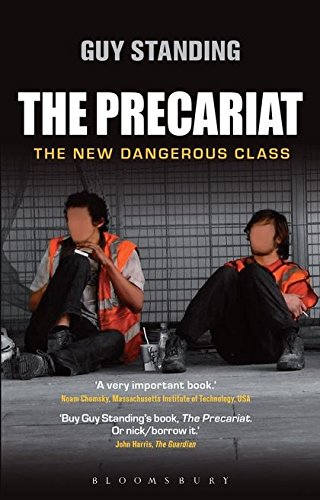transversal, 04/20: Around the Crown (2020) [EN, DE, ES, IT]
Filed under journal | Tags: · basic income, capitalism, economics, pandemic, politics, quarantine, virus
“The state measures, the disciplinary and control society effects and the socio-psychological impacts of the corona virus are widely discussed. At the same time, familiar mechanisms of disinformation and fake news are developing in the social media. But what is happening beneath these broad mainstreams, in micro-politics, in collectives, in the social surrounds around the virus? In a series of blog posts, original texts and translations, transversal texts tries to give space to these voices and to promote the debates on social responses to isolation and anti-sociality.”
Contributors: Laboratorio Occupato Morion, Franco „Bifo“ Berardi, Chopin, Lucía Naser, Montserrat Galcerán Huguet, Rob Wallace, Alex Liebman, Luis Fernando Chaves, and Rodrick Wallace, Angela Mitropoulos, Raúl Sánchez Cedillo, Catherine Malabou, Paul B. Preciado, kritnet.org, Sandro Mezzadra.
Publisher eipcp – European Institute for Progressive Cultural Policies, Linz, 2020
Copyleft
ISSN 1811-1696
Kathi Weeks: The Problem with Work: Feminism, Marxism, Antiwork Politics, and Postwork Imaginaries (2011)
Filed under book | Tags: · autonomy, basic income, capitalism, critique, feminism, fordism, labour, marxism, politics, postwork, production, productivism, value, work

In The Problem with Work, Kathi Weeks boldly challenges the presupposition that work, or waged labor, is inherently a social and political good. While progressive political movements, including the Marxist and feminist movements, have fought for equal pay, better work conditions, and the recognition of unpaid work as a valued form of labor, even they have tended to accept work as a naturalized or inevitable activity. Weeks argues that in taking work as a given, we have “depoliticized” it, or removed it from the realm of political critique. Employment is now largely privatized, and work-based activism in the United States has atrophied. We have accepted waged work as the primary mechanism for income distribution, as an ethical obligation, and as a means of defining ourselves and others as social and political subjects. Taking up Marxist and feminist critiques, Weeks proposes a postwork society that would allow people to be productive and creative rather than relentlessly bound to the employment relation. Work, she contends, is a legitimate, even crucial, subject for political theory.
Publisher Duke University Press, 2011
a John Hope Franklin Center Book
ISBN 0822351129, 9780822351122
304 pages
Guy Standing: The Precariat: The New Dangerous Class (2011–) [EN, PL, BR-PT, FR, CN]
Filed under book | Tags: · basic income, labour, migration, neoliberalism, politics, populism, precariat, social democracy, work

“Neo-liberal policies and institutional changes have produced a huge and growing number of people with sufficiently common experiences to be called an emerging class. In this book Guy Standing introduces what he calls the Precariat – a growing number of people across the world living and working precariously, usually in a series of short-term jobs, without recourse to stable occupational identities or careers, stable social protection or protective regulations relevant to them. They include migrants, but also locals.
Standing argues that this class of people could produce new instabilities in society. They are increasingly frustrated and dangerous because they have no voice, and hence they are vulnerable to the siren calls of extreme political parties. He outlines a new kind of good society, with more people actively involved in civil society and the precariat re-engaged. He goes on to consider one way to a new better society — an unconditional basic income for everyone, contributed by the state, which could be topped up through earned incomes.
This is a topical, and a radical book, which will appeal to a broad market concerned by the increasing problems of labour insecurity and civic disengagement.”
Publisher Bloomsbury Academic, London, 2011
ISBN 1849663513, 9781849663519
Creative Commons BY-NC Licence
ix+198 pages
Essay by the author (The Guardian, June 2011)
Excerpts from a seminar with the author (video, United Nations, September 2011)
Interview with the author (James Foley, International Socialist, November 2011)
Essay by the author (OpenDemocracy.net, January 2012)
Reviews: Keith Randle (Work Organisation, Labour & Globalisation, 2011), Gaverne Bennett (Socialist Review, 2011), Arne L Kalleberg & Hazel Conley & David A Spencer (Work, Employment and Society, 2012; Response), Xavier St-Denis (Canadian Rev of Sociology, 2012), Geoff Bailey (International Socialist Review, 2012), Jan Breman (New Left Review, 2013; Response), Catherine Lawlor (Global Discourse, 2013), Chris Deeming (J Social Policy, 2013), Andreas Bieler (Capital & Class, 2013), Kieran Allen (Irish Marxist Review, 2014), Monica Threlfall (E-International Relations, 2015), Dylan Taylor (POA Review, n.d.), Bengt Furåker (Arbetsmarknad & Arbetsli, 2014, SW), Edgar Augusto Valero Julio (Rev Colombiana de Sociologia, 2015, ES), Lech Mikulski (Państwo i Społeczeństwo, 2015, PL), Jean-Pierre Durand (Nouvelle Revue du Travail, 2017, FR), Anne Rodier (Le Monde, 2017, FR).
The Precariat: The New Dangerous Class (English, 2011, updated on 2018-12-29; EPUB)
O Precariado: A nova classe perigosa (BR-Portuguese, trans. Cristina Antunes, rev. Rogério Bettoni, 2013)
Prekariat: nowa niebezpieczna klasa (Polish, trans. Paweł Kaczmarski and Mateusz Karolak, 2014, Introduction & Chapters 1-3, HTML, PDFs, updated on 2021-1-18)
Le précariat: les dangers d’une nouvelle classe (French, trans. Mickey Gaboriaud, 2017, added on 2020-1-18)
Bu wen ding wu chan jie ji (Chinese, trans. Weiren Liu, 2019, added on 2020-1-18)
See also Standing’s A Precariat Charter: From Denizens to Citizens (2014, EPUB, added on 2018-12-29).
Comment (0)
